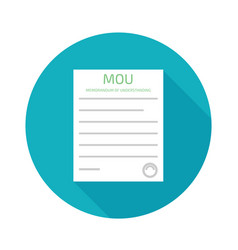Kajian Teori Dalam Penelitian
Abstract
Abstrak: Penelitian merupakan aktivitas ilmiah untuk menghasilkan temuan baru dalam berbagai bidang keilmuan. Penelitian merupakan tulang punggung perkembangan ilmu pengetahuan dan teknologi. Penelitian yang baik membutuhkan serangkaian proses yang standar mulai dari tahap analisis masalah, kajian pustaka, penentuan metode penelitian, analisis hasil dan penyimpulan. Salah satu tahapan yang penting diperhatikan dalam penelitian adalah penulisan kajian pustaka yang dibutuhkan. Tulisan ini bertujuan untuk menjelaskan konsep kajian teori dalam penelitian serta prosedur teknis pengutipan dengan menggunakan beberapa gaya pengutipan. Metode penulisan menggunakan studi pustaka dan analisis komparatif. Hasil analisis menunjukkan bahwa terdapat beberapa gaya pengutipan seperti APA Style, IEEE Style, Harvard style, Chichago Style dan lain-lain. Penentuan gaya pengutipan didasarkan pada kebijakan tempat publikasi kaya ilmiah. Penulis harus mengenali gaya selingkung yang digunakan pada suatu penerbit.
Abstract: Research is a scientific activity to produce new findings in various scientific fields. Research is the backbone of the development of science and technology. Good research requires a series of standard processes starting from the stage of problem analysis, literature review, determination of research methods, analysis of results and conclusions. One of the important stages to be considered in research is the writing of the required literature review. This paper aims to explain the concept of theoretical studies in research and technical procedures for citation using several citation styles. The writing method uses literature study and comparative analysis. The analysis shows that there are several citing styles such as APA Style, IEEE Style, Harvard style, Chichago Style and others. Determination of citation style is based on the policy of a place of scientific rich publication. The author must recognize the style of environment used in a publisher.
Keywords
Full Text:
PDFReferences
Bennett, N., Borg, W. R., & Gall, M. D. (1984). Educational Research: An Introduction. British Journal of Educational Studies, 32(3), 274. https://doi.org/10.2307/3121583
Christensen, L. B., Johnson, B., Turner, L. A., & Christensen, L. B. (2011). Research methods, design, and analysis.
Cooper, D. R., Schindler, P. S., & Sun, J. (2006). Business research methods (Vol. 9). McGraw-Hill Irwin New York.
Edhlund, B. (2015). EndNote Essentials. Lulu. com.
Gall, M. D., Borg, W. R., & Gall, J. P. (2003). Educational research: An introduction. Longman Publishing.
Haddaway, N. R., Collins, A. M., Coughlin, D., & Kirk, S. (2015). The role of Google Scholar in evidence reviews and its applicability to grey literature searching. PloS One, 10(9), e0138237.
Harzing, A.-W., & Alakangas, S. (2016). Google Scholar, Scopus and the Web of Science: a longitudinal and cross-disciplinary comparison. Scientometrics, 106(2), 787–804.
Johnson, R. B., & Christensen, L. (2019). Educational research: Quantitative, qualitative, and mixed approaches. SAGE Publications, Incorporated.
Juliansyah Noor, S. E. (2016). Metodologi Penelitian: Skripsi, Tesis, Disertasi & Karya Ilmiah. Prenada Media.
Kerlinger, F. N. (1978). Similarities and differences in social attitudes in four Western countries. International Journal of Psychology, 13(1), 25–37.
Kratochvíl, J. (2017). Comparison of the accuracy of bibliographical references generated for medical citation styles by EndNote, Mendeley, RefWorks and Zotero. The Journal of Academic Librarianship, 43(1), 57–66.
Miller, R. L. (2019). Using EndNote for Managing Citations.
Moed, H. F., Bar-Ilan, J., & Halevi, G. (2016). A new methodology for comparing Google Scholar and Scopus. Journal of Informetrics, 10(2), 533–551.
Monks, F. J., & Knoers, A. M. P. Siti Rahayu., H. (1999). Psikologi Perkembangan; alih bahasa,.
Nasution, S., & Thomas, M. (2019). Buku penuntun membuat tesis, skripsi, disertasi, makalah.
Neuman, W. L., & Kreuger, L. (2003). (n.d.). Social work research methods: Qualitative and quantitative approaches. Allyn and Bacon.
Parabhoi, L., Seth, A. K., & Pathy, S. K. (2017). Citation management software tools: A comparison with special reference to Zotero and Mendeley. Journal of Advances in Library and Information Science, 6(3), 288–293.
Patak, A. A., Naim, H. A., & Hidayat, R. (2016). Taking Mendeley as multimedia-based application in academic writing. International Journal on Advanced Science, Engineering and Information Technology, 6(4), 557–560.
Penyusun, T. (2006). Buku Panduan Penulisan Skripsi. Surabaya: Unesa University Press.
Peralta‐Pizza, F., Pinzón, D. C., Gaitán, H. G., Eslava‐Schmalbach, J., & Rodriguez‐Malagon, N. (2019). Google Scholar to identify research studies. Cochrane Database of Systematic Reviews, (1).
Praherdhiono, H., Setyosari, P., Degeng, I. N. S., Slamet, T. I., Surahman, E., Adi, E. P., … Abidin, Z. (2019). Teori Dan Implementasi Teknologi Pendidikan: Era Belajar Abad 21 dan Revolusi Industri 4.0. Seribu Bintang.
Salija, K., Hidayat, R., & Patak, A. A. (2016). Mendeley Impact on Scientific Writing: Thematic Analysis. International Journal on Advanced Science, Engineering and Information Technology, 6(5), 657–662.
Shin, J. (2016). Mendeley Mobile: Powerful Cloud-Based Article and Reference Management in Your Pocket. Springer.
Sugiyono. (2014). Metode Penelitian Kuantitatif, Kualitatif dan R&D. Alfabeta. Bandung.
Sulistyo, B. (2010). MetodePenelitian. Jakarta: Penaku.
Surahman, E. (2018). The Role of Excellent Center of Science and Technology (IPTEKS) for Building Research Culture and Publication: A Case Study at the Bandung Institute of Technology Indonesia. 3rd International Conference on Educational Management and Administration (CoEMA 2018). Atlantis Press.
Thelwall, M., & Kousha, K. (2017). ResearchGate versus Google Scholar: Which finds more early citations? Scientometrics, 112(2), 1125–1131.
Wasserman, T., & Wasserman, L. D. (2017). Endnote: How We Got Here. In Neurocognitive Learning Therapy: Theory and Practice (pp. 173–176). Springer.
Wibisono, D. (2013). Panduan penyusunan skripsi, tesis & disertasi. Yogyakarta: ANDI.
DOI: http://dx.doi.org/10.17977/um038v3i12019p049
Refbacks
- There are currently no refbacks.
Copyright (c) 2020 Ence Surahman, Adrie Satrio, Herminarto Sofyan

This work is licensed under a Creative Commons Attribution-ShareAlike 4.0 International License.
JKTP: Jurnal Kajian Teknologi Pendidikan published by Department of Educational Technology, Faculty of Education, State University of Malang in Collaboration with Asosiasi Program Studi Teknologi Pendidikan Indonesia (APS TPI).
Publisher Address:
Lab. Teknologi Pendidikan, Gd.E2, Lt.1
Fakultas Ilmu Pendidikan Universitas Negeri Malang
Jl. Semarang 5, Kota Malang Email: jktp.fip@um.ac.id
========================================================================================================
| INDEXED BY | TOOLS | PLAGIARISM CHECK | ARTICLE TEMPLATE |
|
|

JKTP: Jurnal Kajian Teknologi Pendidikan is licensed under a Creative Commons Attribution-ShareAlike 4.0 International License.
JKTP Statistics (Since July 13th, 2020)





.png)












